‘Pan-Islamism’ in Turkish Foreign Policy as an Academic Distortion: A Reply to Ozkan
- Kategori : Bağımsız Yazı
- 1 Yorum
[Blokun Türkiye’den okuyucularına not: aşağıdaki yazı Marmara Üniversitesi’nden Behlül Özkan’ın Survival dergisinde “Türkiye, Davutoğlu ve Pan-İslamcılık Düşüncesi” başlıklı makalesine yönelik bu blogda yazdığım bir eleştiri yazısının genişletilmiş halidir. Eylül 2014’te kaleme alındı ve Survival dergisine cevap olarak gönderildi. Fakat derginin politikası gereği yazı önemli ölçüde kısaltıldı ve “‘Pan-Islamism’ and Ideology” başlığı altında derginin 2015/2 sayısında yayımlanacak. Aşağıda metnin ilk taslak ve de uzun hali mevcuttur]
In assembling the following reply on Behlül Özkan’s recent article ‘Turkey, Davutoglu, and the Idea of Pan-Islamism’ in the journal Survival (2014), I find myself in an awkward position because I generally hold his book based on post-structuralist theory in high regard. It was quite surprising to find out how his article has drifted away from his theoretical background.
In this article, Özkan basically argues that Turkish Foreign Minister Ahmet Davutoğlu’s “support for the overthrow of Middle Eastern dictators did not stem from a preference for democratic government, nor was he an ardent supporter of human rights, a free press or individual liberties”. His only motivation, for Özkan, was to create a system in the Middle East deriving its legitimacy from Islam (p. 133-134). The establishment of a system based on the legitimacy of Islam, allegedly in the thought of Davutoğlu, will create a Lebensraum in the Middle East through which Turkey will be a central country. Özkan concludes that Davutoğlu’s “assertive foreign policy is not based on Islamist values” (p. 130) since Islam is a tool in creating a Lebensraum for Turkey in the Middle East region. Just like “archaic Western geopolitical theories” advocated in the first half of the 20th Century, Davutoğlu’s pan-Islamist vision/ambition is a geopolitical project of creating a hinterland to make Turkey “a global power” (p. 135).
One Soul, Many Distortions
Although Özkan’s paper aims to prove that Turkey’s recent foreign policy is driven by Davutoğlu’s pan-Islamist ideas, it is replete with several problems ranging from factual mistakes to reductionist explanations. This rejoinder will not focus on labels or speculate whether Davutoğlu’s foreign policy is pan-Islamist or not. Instead, I will point to the significant problems of picturing him as a pan-Islamist and present methodological, factual and ideological distortions in an academic article labeling his foreign policy as pan-Islamist. My ‘ethical’ position against Özkan’s paper is the following: even though it is possible to argue that Davutoğlu’s foreign policy is pan-Islamist, it is impossible to do so through methodological, factual and ideological distortions. Added to such problems, some critics of Özkan, rightly point out that everything in his paper is subject to the predetermined result (that current Turkish foreign policy is pan-Islamist) and the facts are forced to speak to legitimize this predetermined result. It is, therefore, not surprising that Fuat Keyman, one of the foremost students of Turkish politics, suggest the following: “As someone who has read many – if not all – of Davutoğlu’s works, it’s difficult to understand how Dr. Özkan has drawn the conclusion that Davutoğlu is a pan-Islamist”.[1] Though a valid criticism, I do not think the selective reading of Özkan is the main issue.
Methodological Distortion(s)
The main contention in Özkan’s paper is that Davutoğlu’s foreign policy is not neo-Ottomanist as many students of Turkish foreign policy tend to argue. By focusing on a discourse that emphasizes Turkey’s Ottoman past and mixes this history with the geographical legacy of Ottoman Empire in Turkey’s immediate neighborhood to justify an active foreign policy, some scholars argued that neo-Ottomanism is a characteristic feature of the period under the AKP rule.[2] These scholars based their neo-Ottomanism thesis on the foreign policy practices and discourses during the AKP rule. The same methodology is also used by Özkan in his labeling the former President Turgut Özal’s foreign policy as neo-Ottomanist. For Özkan, Özal’s 1987 application for European Union membership as part of modernization, his attempt to expand Turkey’s influence in the Caucasus and the Balkans, his effort to solve the Kurdish issue through reforms, and his dream of bringing northern Iraq under the control of Ankara are presented as practical proofs of Özal’s neo-Ottomanist foreign policy.
Interestingly, examples of Özal’s neo-Ottomanism given by Özkan are similar to those of scholars labeling AKP’s foreign policy as neo-Ottomanist. For example, Ömer Taşpınar mentions “tolerant of Kurdish cultural rights and expression of Kurdish national identity”, influence on “the geographic reach of the Ottoman” Empires in “the Middle East, North Africa, the Balkans and parts of Central Europe”, and “goal of embracing the West as much as the Islamic world” as examples of “Davutoglu’s ‘neo-Ottoman’ vision”.[3] When Özkan casts his gaze on Davutoğlu, he uses Davutoğlu’s academic and popular writings in the second half of the 1980s and the 1990s as proofs of his pan-Islamist foreign policy after the year 2009 (pp. 129-130). This methodological inconsistency, I think, is a result of the widely accepted secularist maxim in Turkey according to which ‘once an Islamist, always an Islamist.’[4] The alleged Islamist identity of Davutoğlu is enough reason to simply dismiss out of hand any possibility of a transformation in his readings of world politics under different conditions.
The problem is that Özkan, who earlier wrote his book based on post-structuralist theory[5], gives to the subject a privileged position and ignores how the ‘Author’ is also a product of his/her own time and experiences . This privileging of agency is not particularly helpful when Davutoğlu is concerned since the methodological shift forces Özkan to ignore the constitutive effects of the critical turning points and events on the thoughts and practices of Davutoğlu such as ‘the Bosnian genocide’, 11 September attacks, the Arab Spring. For example, Özkan mentions “sectarian strategy based on Sunni axis” after the increase in sectarian violence in Syria (p. 134) as evidence of Davutoğlu’s pan-Islamist “adventure”. Right after this argument, Özkan compares sectarian strategy after Syrian civil war with non-sectarian strategy of Turkey in Iraq’s sectarian conflict after the fall of Saddam Hussein in 2003. When it is considered that Davutoğlu was the main figure in playing Turkey’s intermediary role between different religious groups in Iraq, Özkan’s ‘privileged subject’ does not explain the change of Davutoğlu’s policy towards different religious groups in Iraq. Looking at rapidly shifting regional structures after the American invasion of Iraq and spillover of the Arab Spring into Syria could have provided a better grasp of the the change in Davutoğlu’s thoughts and practices but Özkan’s new methodological shift halts this possible construal.
Hence, the issue is that Özkan’s a priori epistemological position encourages him ask why Turkey is following ‘pan-Islamist’ foreign policy rather than asking how or under what conditions pan-Islamist tendencies, assuming they exist, occur in Turkish foreign policy politics. This methodological move leads Özkan to search for an initial ‘root cause’ of every action Davutoğlu engages in history. Relatedly, Özkan finds a trigger in Davutoğlu’s academic writings in the 1990s and connects them to his foreign policy practices in the 2000s by glossing over an almost whole decade particularly between 2002 and 2009. The problem is that Özkan readily neglects all the transformations, deviations, diversities and even ruptures in Davutoğlu’s thoughts and practices.
Factual Distortion(s)
Another main fallacy in Özkan’s paper is his contention that “Davutoglu’s main contribution to foreign policy before 2009 was in Turkey’s relations with the Middle East” (p. 132) This contention is by no means coincidental. By arguing so, Özkan not only consolidates his thesis that Davutoğlu’s “pan-Islamism particularly focuses on the Middle East” (p. 127) but he also attempts to create continuity between Davutoğlu as foreign policy advisor and Davutoğlu as foreign minister. While Davutoğlu as foreign policy advisor is generally called as an architect of new assertive Turkish foreign policy ranging from Cyprus to the European Union[6], Russia and the Middle East, Özkan puts particular emphasize on Davutoğlu’s role in making Turkey’s foreign relations towards the Middle East before 2009. This fallacy is functional in coming to the conclusion that Davutoğlu’s foreign policy was/is pan-Islamist because it undermines neo-Ottomanist thesis by burying Davutoğlu’s role AKP’s assertive foreign policy towards the Cyprus issue, the EU, and Russia.
The factual distortion in Özkan’s paper is not about ignoring some facts on the ground, rather it is in how Özkan verifıes his claims. Özkan mentions three empirical evidences in order to show Turkey’s “exceptional” relations with the Middle Eastern countries (132). Firstly, Turkey’s trade volume “with the Middle East and North Africa increased by nearly 5.4” between 2002 and 2011. Secondly, visa-free travel was established with many Middle Eastern countries. Lastly, Turkish Airlines opened routes to all major cities in the Middle East. Sometimes it is necessary to state the obvious: it is simply not possible to automatically link numerical increases with a higher cultural/moral imperative including that of pan-Islamism since one must always factor in other indices before jumping into conclusions. For example, Özcan’s first proof is pointless without comparison and wider picture of Turkey’s foreign trade. For example, Turkey’s proportion of trade with Russia increased from around 5,7 percent in 2002 to more than 11 percent in 2008.[7] Also, the slight increase in Turkey’s proportion of trade with Middle Eastern countries can be attributed to the rise of energy consumption in Turkey and global energy prices. This is reason why “the growth in trade was driven by Turkey’s exports to the Middle East rather than from its imports” between 2002 and 2009.[8] On the other hand, the decrease of EU’s share in Turkey’s trade volume from 2002 to 2008 was not related to Davutoğlu’s foreign policy vision but the decline of total share of the EU countries in world merchandise trade.[9]
The break-down of visa-free states in regional-religious categories also casts doubts on Özcan’s conclusions. Turkey signed visa-free travel agreements on different levels or visa holder-status with 24 countries between 2002 and 2009. These countries include; Tajikistan (2003 and 2009); Uzbekistan (2003); Romania (2004); Guatemala (2004); Venezuela (2005); Paraguay (2006); Colombia (2006); Latvia (2006); Vietnam (2007); Kuwait (2007); Afghanistan (2007); Montenegro (2008); India (2008); UAE (2008); Kosovo (2009); Djibouti (2009); Syria (2009); Pakistan (2009); Albania (2009); Kenya (2009); Qatar (2009); Libya (2009); Jordan (2009); Azerbaijan (2009). While six of them were with Middle East and North African countries, seven with Asian countries, five with European countries and four with Latin American countries. Therefore, the numbers of visa-free travel agreements does not necessarily suggest that Turkey privileged its relations with the Middle East over other regions. If the number of visa-free agreements is an indication of ideological inclination in Turkey’s foreign policy, Turkey’s latest visa-free map would say that Turkey followed an expansionist foreign policy towards Latin America under the AKP rule.[10]
Lastly, the national flag carrier Turkish Airlines’ international flight routes increased almost double between 2002 and 2010. However, the main burden of this rise belongs to Asia and the increase in Middle East and North Africa (MENA) region is equal to number of route openings in Europe.[11] From these figures, it is impossible to come to the conclusion that Davutoğlu’s main contribution was in Turkey’s relations with the Middle East. Özkan mentions another proof which was the rise of Turkish companies’ construction investments in the region but it was, as Özkan rightly captures, “the result of the increase in the oil revenues of Middle Eastern states and of post-war development in Iraq” (s. 132). Consequently, the rise of trade volume, visa-free agreements, and flight routes are not necessarily an indication of Davutoğlu’s normative/moral contribution to foreign policy making before 2009 as in the case of Turkish companies’ construction investments in the region.
As an author who argues Davutoğlu “turned his pan-Islamist vision into reality after 2002, following his appointment as foreign-policy adviser to the ruling” AKP (p. 119), it is rather tragic to find evidences for his main thesis by either distorting or misrepresenting quantifiable variables open to public. For the period between 2002 and 2009, the only evidence the author entertains for showing the pan-Islamist proclivities of Turkish foreign policy as designed by Davutoğlu is a set of academic,-not even ideological- works, produced in the corridors not of power but academe. Discourse analysis is a meaningful methodology when it coincides with facts and practices or else pointless if it leads to digging history to find statements in order to distort the meaning of current practices.
Ideological Distortion(s)
Özkan’s methodological preferences lead him to advocate the traditional conviction of the secularist in Turkey in particular and the Orientalist maxim emphasizing the unchanging core of Muslim individuals/societies in general. So construed, the alleged Islamist identity of Davutoğlu appears, for Özkan, enough reason to reject -let alone appreciate- any possibility of transformation or even a makeover in his reading of world politics through time. As I mentioned above, this is a common farcical assumption among political and academic circles in Turkey about Islamist movements and actors. Accordingly, it is not a coincidence that Özkan’s arguments are welcome by Turkey’s secular elite and widely circulated by dailies such as Cumhuriyet or Taraf. Though important, this is not my main line of criticism of Özkan’s article in terms of its ideological problems. Özkan’s paper is very problematic because of its essentialist assumptions.
Firstly, Özkan’s approach adopts a very essentialist dichotomy between the Islamists and secularists in Turkey. For example, Özkan argues that Davutoğlu’s “political analysis remains on the level of prophecy rather than prognosis; his ideas are pseudoscientific, based on inspiration related to historical destiny rather than rational thought” (p. 130). Davutoğlu is not an exception, for Özkan, since ideas of other well-known Islamist intellectuals such as Necip Fazil Kisakürek and Sezai Karakoç on world politics were also too “rhetorical” to be “taken seriously by Turkish elites” (p. 120). This would be so, as the reasoning goes, because realist policy is to “continue to progress towards becoming a secular and democratic country” (p. 137). Tellingly, the term “continue” as a verb is vital since Özkan presents Davutoğlu’s pan-Islamist foreign policy as an exception by arguing that “Davutoglu’s failure cannot and should not be considered Turkey’s failure, as the country has many more assets than he acknowledges” (p. 137). In all, Özkan once again simply asserts rather than demonstrate that Islamist intellectuals’ reading of world politics is not rational but rhetorical, inspirational and adventurist while traditional foundations of Turkish foreign policy established by secular Turkish elite are rational.
Secondly, Özkan employs a pre-given assumption about what is ideological and what is not. For example, Özkan concludes that instead of following a foreign policy based on “ideological reasons” (p. 136), Turkey should turn to its “less ideological management of foreign policy” (p. 137). Related to this, the viable alternative of Davutoğlu’s so-called pan-Islamist foreign policy, as Özkan mentions, is “the promotion of human rights, democracy, and individual liberties” in the Middle East (p. 135). On the other hand, we fortunately know, from critical studies, that “the promotion of human rights, democracy, and individual liberties” is not an innocent foreign policy but post-Cold War apparatus of the West in dominating the rest of the world.
More specifically, as mentioned, Özkan’s narrative strategy in depicting Davutoğlu as a pan-Islamist relies heavily and unconvincingly on the use of highly contentious binaries such as rational vs irrational foreign policy; scientific vs pseudoscientific, ideological vs non-ideological, rhetorical vs factual and so on. Here the issue is not that in foreign policy we should dispense with the latter dichotomies. Rather it is the pretention that these dichotomies are universally valid and neutral in depicting the intricacies of foreign policy making. There is little analytical help in presenting Davutoğlu’s approach in such binaries other than the fact that it is in part through such binaries that Özkan is able to establish himself and his gaze as rational, scientific, non-ideological. For example, take his contention that Davutoğlu’s ‘ideas are pseudoscientific, based on inspiration related to historical destiny rather than rational thought’ (p. 130). This take on world politics is highly problematic not simply because it pretends that the complexities of world politics can be reduced to a set of universal rules amenable to rational calculus, but more significantly it collapses the whole gamut of foreign policy decision making process into the actions or cognitive properties of an agent-here Davutoğlu and his pan-Islamist ideology. The search for a mono-causal or rational explanation for foreign policy practices, as Özkan seeks, by way of scientific explanations is a distant past, since neither the rigorous empirical aggregate data analysis nor statistical confirmation significantly increases the explanatory and predictive power of our analyses. It is now commonly agreed that it is better to treat agents of foreign policy making as having limited (ideological or otherwise) information-processing capabilities and therefore preferring ‘satisfying’ rather than ‘optimal’ alternatives due to many dynamics in ‘the decision environment’ and/or because of the psychological, domestic, international political and cultural factors.[12]
To be non-reductionist, there has to be three elements that should be accounted for in any explanation of social action: structure, culture and agency[13]. Although the relationship between these elements cannot be established a priori, Özkan’s fallacy is to paradoxically treat Davutoğlu as either an ideological dupe at the mercy of pan-Islamism or-at the other extreme-treat Davutoğlu as a cunning politician who manipulates moral politics of pan-Islamism for his higher power-political aims, namely reestablishing a Turkish Empire. This seems untenable since it assumes we can read Davutoğlu’s mind and find out how he is stitching together a linguistic-symbolic construct (pan-Islamism) with an extralinguistic political objective. Even if we assume that the individual or collective agents can ‘explore and manipulate contingent cultural compatibilities to their advantage’ it is beyond their power to command the outcome. Since Özkan’s paper is so centrally grounded in binary oppositions such as rational/ambitious, ideological/less ideological, it is impossible to proceed with an evaluation of his particular propositions regarding Turkish foreign policy under Davutoğlu without first asking whether or not conceptualization of Davutoğlu era as pan-Islamist is itself ideological.
[1] Fuat Keyman, “Davutoğlu ‘Pan-İslamist’ mi?”, Radikal, August 27, 2014
[2] See for example, Lerna K. Yanık, “Constructing Turkish ‘exceptionalism’: Discourses of liminality and hybridity in post-Cold War Turkish foreign policy.” Political Geography 30.2 (2011): 80-89; Joshua W. Walker, “Turkey’s imperial legacy: Understanding contemporary Turkey through its Ottoman past” Perspectives on Global Development and Technology 8.2-3 (2009): 494-508.
[3] Omer Taspinar, “Turkey’s Middle East Policies: Between Neo-Ottomanism and Kemalism”, No. 10. Carnegie Endowment for International Peace, 2008, pp. 14-15
[4] Menderes Çınar, “Turkey’s Transformation under the AKP Rule, The Muslim World”, 96(3), 2006, p. 469
[5] Behlül Özkan, From the Abode of Islam to the Turkish Vatan: The Making of a National Homeland in Turkey, Yale University Press, 2012
[6] See for example, Joshua Walker, “Learning Strategic Depth: Implications of Turkey‘s New Foreign Policy Doctrine”, Insight Turkey 9.3 (2007): 25-36; Cengiz Çandar, “Turkey’s ‘soft power’ strategy: A new vision for a multi-polar World”, SETA Policy Brief 38 (2009): 3-11; Bülent Aras, “The Davutoğlu era in Turkish foreign policy”, Insight Turkey 11.3 (2009): 127-142.
[7] Kemal Kirişçi, and Neslihan Kaptanoğlu, “The politics of trade and Turkish foreign policy”, Middle Eastern Studies, 47.5, 2011, p. 708
[8] Güneş Murat Tezcür and Alexandru Grigorescu, “Activism in Turkish Foreign Policy: Balancing European and Regional Interests”, International Studies Perspectives, Vol. 15, 2013, p. 269-270
[9] Mehmet Babacan, “Whither an axis shift: A perspective from Turkey’s foreign trade”, Insight Turkey 13.1 (2011): p. 13
[10] The map is extracted from Wikipedia article titled “Visa requirements for Turkish citizens” in September 2, 2014
[11] Mehmet Babacan, “Whither Axis Shift: A Perspective from Turkey’s Foreign Trade”, SETA Policy Report, No: 4, November 2010, p. 14
[12] Alex Mintz and Karl DeRouen Jr., Understanding Foreign Policy Decision-Making, New York: Cambridge University Press, 2010, p. 34 and pp. 97-106.
[13] Marharett Archer (eds), Social Morphogenesis, New York: Sprinter, 2013, p.4.






 Etiketler
Etiketler
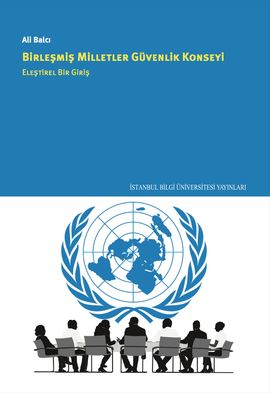

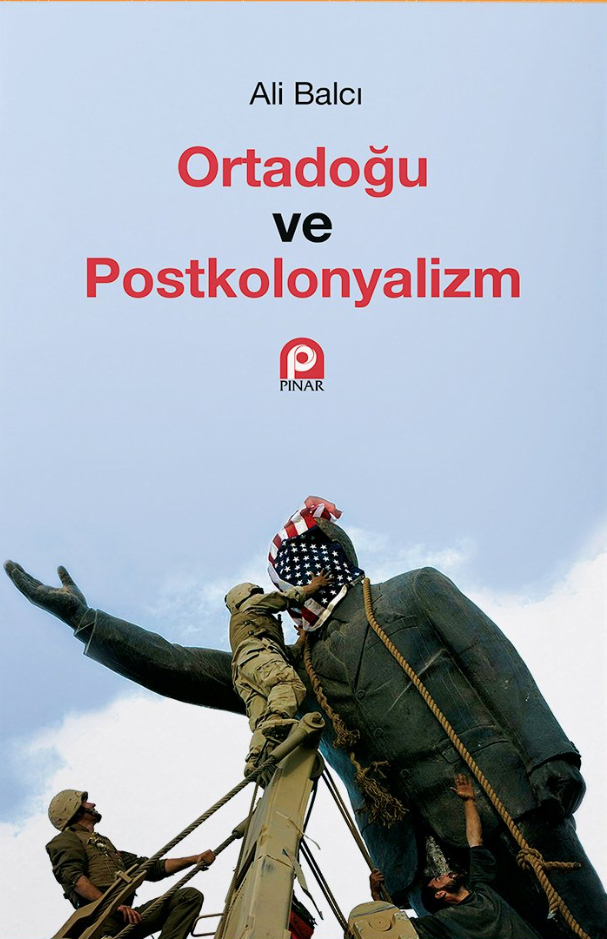
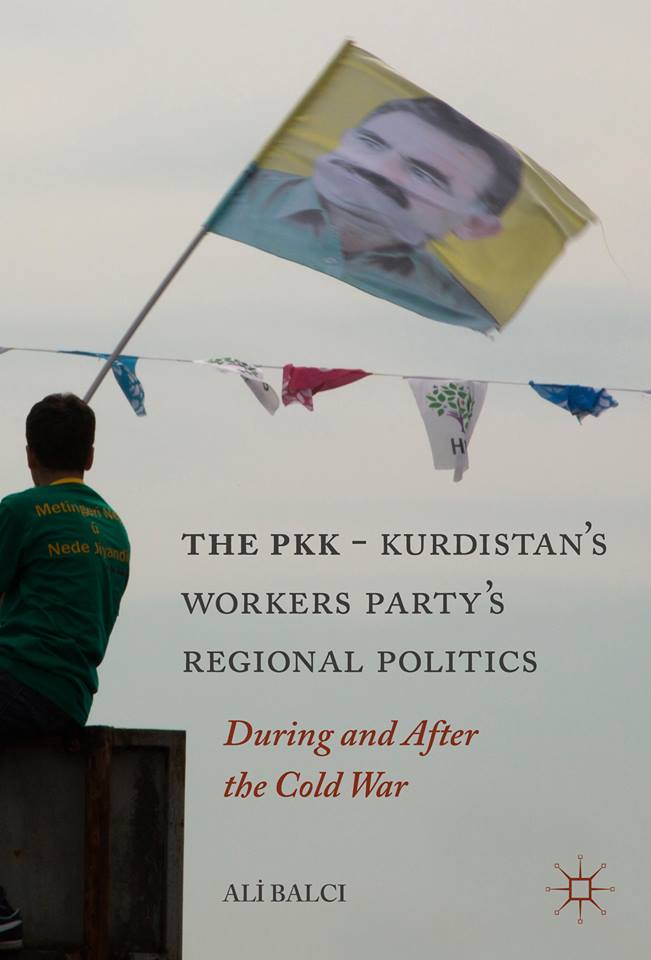
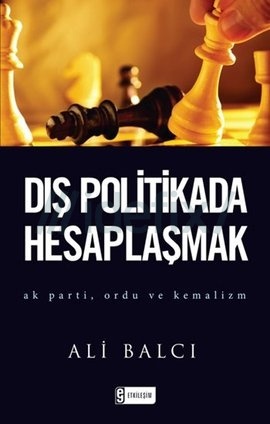
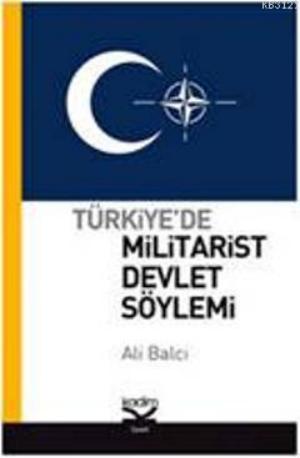
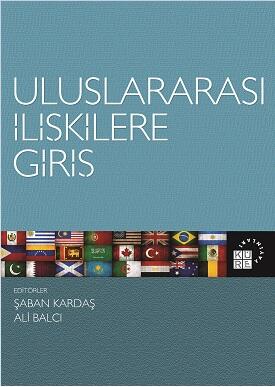
Türkçe karşılığını çok merak ettim acaba yukardaki e postaya atarmısınız